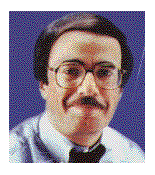|
|

Jewish World Review / June 11, 1998 / 17 Sivan, 5758
Roger Simon
WASHINGTON -- Just a couple of months ago, Bill Clinton flew to Africa and met with
the survivors of the orgy of killing that occurred in Rwanda in 1994.
It was a very emotional meeting. I was the only reporter allowed in the room -- I was
"pooling" all my reporting with my colleagues -- and I took careful notes about how
stricken the president appeared.
His throat working with emotion, he said: "We are reminded of the capacity in people
everywhere -- not just Rwanda, and certainly not just in Africa -- but the capacity for
people everywhere to slip into pure evil."
"We come here today partly in recognition of the fact that we in the United States and
the world community did not do as much as we could have and should have done to try
to limit what occurred in Rwanda," he said.
And later, he added: "We did not act quickly enough after the killing began. We did not
immediately call these crimes by their right name: genocide."
He promised to do better in the future.
Well, the future is here.
And, so far, Clinton is not doing much.
In Kosovo, the Serbian military and police forces are using tanks and artillery to
slaughter the ethnic Albanian civilians there.
And this week, our own State Department called what the Serbians were doing "ethnic
cleansing."
When asked if he meant to use so harsh a term, the State Department spokesman,
James Rubin, replied: "When you see a determined effort to focus a military campaign
against one ethnic group, to move people out of villages, to use heavy firepower
against one ethnic group, that is ethnic cleansing in my book."
I called the White House to get its reaction, and I was told that the White House
prefers to use the term "human rights violations" to describe what the Serbs are doing
but that it "would not argue" with the term "ethnic cleansing."
What's the difference?
None, if you are on the wrong end of that tank or artillery piece.
But if you are Bill Clinton and have promised to act more quickly in the future to prevent
things like genocide and ethnic cleansing, then people wonder when you are really
going to do something in Kosovo.
At a press conference Tuesday, all Clinton would say was that he would support a U.N.
resolution calling for "all necessary means to try to avoid ethnic cleansing and the loss
of human life" in Kosovo.
But considering his State Department says that ethnic cleansing is already occurring,
that statement makes Clinton look somewhat behind the curve.
"This is a very thorny problem," Clinton said.
It is thorny, because Clinton doesn't really want to send U.S. troops to Kosovo, which
is a region of Serbia bordering Albania, to stop ethnic cleansing or genocide or anything
else.
We are already slowly withdrawing troops from Bosnia, and having escaped any major
disasters there, Clinton does not want to press his luck, even though both the
Republican and Democratic leaders of the Senate say U.S. troops may be necessary
in Kosovo.
Bill Clinton might agree to that. But air strikes, as recent history has shown, are not
much good against hidden artillery sending shell after shell into towns and villages.
But what is Clinton to do?
On the one hand, he got all choked up when talking about how the United States had to
move more swiftly and effectively against innocent people being slaughtered.
On the other hand, he really doesn't want to risk the fallout, political and otherwise, of
getting American troops bogged down in a conflict far from home.
"This is a very thorny problem," Clinton said.
Which, so far, is what the people of Kosovo can expect from us: empty words, not
effective
 He claimed responsibility for Rwanda, so why isn't Bubba stopping Serbian genocide?
He claimed responsibility for Rwanda, so why isn't Bubba stopping Serbian genocide?
 Although he did not formally apologize for the United States' lack of action in trying to
prevent the slaughter, Clinton did shoulder some of the blame.
Although he did not formally apologize for the United States' lack of action in trying to
prevent the slaughter, Clinton did shoulder some of the blame.
 NATO is studying a military option in Kosovo, but the British, who also sent troops and
took losses in Bosnia, favor air strikes rather than ground troops.
NATO is studying a military option in Kosovo, but the British, who also sent troops and
took losses in Bosnia, favor air strikes rather than ground troops.
